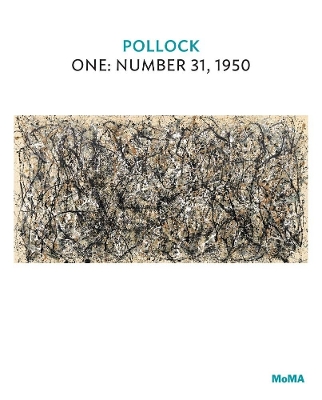MoMA One on One
1 total work
In the late 1940s, Jackson Pollock, now recognized as one of the most important Abstract Expressionist artists, began experimenting with a new method of painting that involved dripping, flinging and pouring paint onto a canvas laid flat on the ground. This process engaged his entire body, and the resulting images were a direct index of the energy he expended to create these works. One: Number 31 (1950), among the largest of the paintings he produced by this method, is a virtuoso showcase of his mastery of materials and technique. In this volume of the MoMA One on One series, a lively essay by former museum curator and professor Charles Stuckey offers an in-depth exploration of the painting, one of many groundbreaking works by Pollock in MoMA’s collection.
